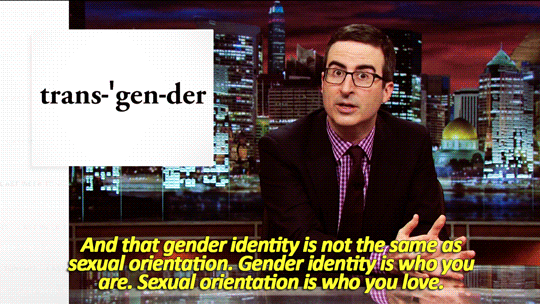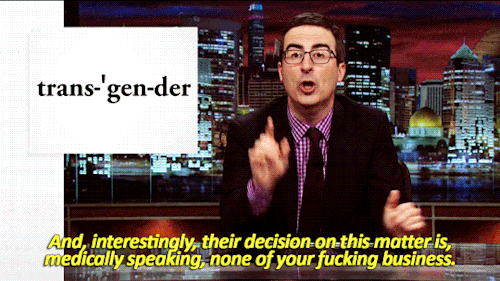
Take good care of yourself so you can care for others as well.
91 posts
Latest Posts by deluded-wanderer - Page 3


















We need more people like this









Credit:
https://medium.com/@thenib/you-can-be-a-patriot-without-loving-america-afe4a08e2eaf
Hey, unpopular opinion, apparently. But people don’t just “have pain for no reason” doctors say this all the time (especially to women and chronically ill people) and the truth is, Thats literally not possible. Even if your pains are psychosomatic (a word I hesitate to even use because of the way its used so often) there is a reason you are having those pains whether its mental illness, abuse, etc. If your doctor consistently tells you that “well some people just have pain for no reason” get a new doctor. That’s a doctor who is not going to give a shit what your actual symptoms or experiences are.
Cute ☺️
Please uitwaaien
It's even more fitting that the Mars 2020 rover is named Perseverance considering everything that's been going on in the world
You're dedication will take you more places than giving up ever will. Times will be tough, yes, and it will feel as if you just want to quit it all together. So you'll rest for a day or two which feels like an eternity but you'll get back into the swing of things. You'll simply remember nothing ever stays the same. Ebbs & Flows. Rather on fighting the old you simply learn to dance with the devil instead.
Alright. The people I am thankful for are my two close friends. Hanging out with them, I felt a sense of calm and comfort. We let each other be whatever we wanted, no judgements, no intruding. All of us were going through some kind of chaos or another in our personal lives, so we sort of all needed that silence in one way or another. Thanks so much, guys.
Today Someone said to me , is there any person you wanna say thank you to ?
And for sec i said huh yep my Dad I feel bad because he was there for me all the time i feel like as grown up there’s a desire within me that i wanna protect him 24/7 .
And you guys reblog this with a person you are thankful for in your life .
MBTI & Ideas
The Soar Cognitive Architecture (John E. Laird, 2012)
“The variability and the adaptability of cognition comes from the knowledge that is encoded in a cognitive architecture.
Thus, a cognitive architecture provides the fixed processes and memories and their associated algorithms and data structures
to acquire, represent, and process knowledge about the environment and tasks for moment-to-moment reasoning, problem solving, and goal-oriented behavior.
This leads to a simple equation: architecture + knowledge = behavior. (…)
An environment, though it may be complex and dynamic, is not arbitrary.
The laws of interaction that govern the environment are constant, often are predictable, and lead to recurrence and regularity that affect the agent’s ability to achieve its goals.
There are different regularities at different time scales, which makes it possible and useful to organize knowledge about tasks, actions, and the environment hierarchically. (…)
Computation resources are limited so that an agent cannot perform arbitrary computation in the time it has available to respond to the dynamics of the environment.
Thus, an agent has bounded rationality and cannot achieve perfect rationality (or universal intelligence) in sufficiently complex environments and tasks when it has a large body of knowledge. (…)
Thus, to preserve reactivity, a cognitive architecture must constrain the types of knowledge that can be encoded and or the types of queries that can be made.
The architecture can include fixed methods for organizing its knowledge so that it can be searched quickly (relative to overall temporal scale of the agent),
possibly in bounded time, using data structures such as hash tables, heaps, or trees that avoid the exponential explosion inherent to problem-space search.”
Foods that are packed with vitamins and nutrients that help with your body and mind's health (which includes your mood):
Chicken/ Pork/ Beef
Tuna/ Salmon / Shellfish
Tofu
Lentils/ Beans
Seeds/Nuts
Eggs
Dried fruit
Spinach/ Leafy greens
Mushrooms
Whole, unprocessed carbohydrates (brown bread/rice/pasta)
Cocoa (without sugar. Dark chocolate is good)
Avocados
Milk
Bananas
Sweet potato

Express yourself, tell your loved ones if you're not well, otherwise they will never know.
hi, Charity! I hope you’re doing well. I’m writing to you because a year or two ago I got into cognitive functions and typed myself as an INFP 4w5 after some reading. However, going through your WordPress pages (as well as learning that Nines have a tendency to mistype) has me rethinking some things, and I’d be curious about your observations if you have the time/inclination to share them… [deleted]
9 is a type rather like 6 and 3, in that it is universally misunderstood, and all three of them present differently in a person depending on their stacking, their fixes, and their MBTI type. Some 9s report never feeling angry, and some tell me they are infuriated almost all the time. So, some 9s are more aware of their anger, and others are not.
I guess the question for you would be – if you had to sacrifice being “me” in order to keep the peace in a relationship (put aside yourself), would/could you do it relatively easily? That suggests a 9 desire to stay calm and be at peace with yourself (avoiding inward and outer conflict) would outrank the desire to be “true to oneself.”
I get asked about 4-9 vs. 9-4 a lot, and for the latter, I usually point to Rose in Titanic as an example of a 4-9. She is STILL primarily all emotion (“I don’t know what this is, but I trust it… and I’m getting off this boat with you”), she has a tendency to view herself as superior to others (“the difference between Cal and my taste in art is I have some”), she is angry at not being allowed to be true to herself, and given the chance to do so, she embraces it happily. I have the feeling a lot of 4 cores would understand her completely, whereas a lot of 9 cores would “sort of” get her desire to be fully true to herself but also find her melodramatic. She often causes trouble with passive-aggressive behaviors (insulting Mr. Ismay at lunch and embarrassing Cal after he puts out her cigarette, for example) as a 4-9 that a 9-4 might avoid out of their lack of a desire to break a connection to the people around them.
For a 9-4, I’d look at Faramir from The Lord of the Rings. Gentle, peaceful, kind (as 9 cores tend to be), but still very wounded by his failures, prone to melancholic depression, internalizes criticisms deeply, out of his lower 4ish sense of being the “unwanted, unloved son” who must prove himself – but his 9w1 often chooses what is “right” (releasing Frodo) over what he feels. He’s a gut type, thus he goes off his instincts and his emotional responses are secondary. Less elitism, less desire to provoke trouble, less desire to assert himself, very 9ish in his need to maintain the peace. But he is by no means “weak.”
You sound more 9-4 to me than the reverse, just from what you wrote. As for whether you are an ENFP or not… a 9-core INFP is far more tolerant and permissive and open-minded (because 9s automatically see “all sides” / hearing an argument makes them nod and go “that’s fair too”) than other INFPs, due to the nature of 9 being fluid. So if you factor that in and still can’t decide, I’d ask yourself what you are more comfortable with using for hours at a time – Te or Si, and whether you can shut down your Fi to make a hard decision. ENFPs find that far easier than INFPs.
- ENFP Mod
there’s a popular post on tumblr that says INTJs have two “modes”: one that has no qualms using social masks to achieve goals and one that doesn’t see a reason to be anything but honest.
1. how does having a social mask that goes against their true values affect low Fi types?
2. these “modes” are present for all types, aren’t they?
Sounds like “This INTJ is an Enneagram 3″ vs “every other INTJ.” ;)
Healthy TJs typically have strong beliefs based in a few areas (things of personal importance to them that they work hard toward) but high Te knows you get more flies with honey than vinegar. To succeed in business, for example, being likable, presenting oneself as competent, and proving self worth through reliability and the ability to work with people is how you earn their respect and cooperation. That is earnest, sincere, pragmatic, and not a “mask.”
3s on the other hand can “adapt” to be whatever the situation requires of them – for example, keeping their mouth shut on something when they know to bring it up in their current group would cause unnecessary friction and prevent them from accomplishing a goal, or that it might prevent them from GETTING the job they want. (IE, not supporting 100% everything a business, individual, church, group, etc represents, but being able to “appear” in such a form that they assume you are “one of them” without being one of them.) But even 3-core INTJs do have something they believe in and are working toward.
So… yeah, on this issue I’d say 3-core/fixed vs. not-3-core/fixed (non-adaptable) is the factor. And yeah, the same goes for every other type.
- ENFP Mod

Anand Giridharadas:
“We often have these folk memories that are not our own memories, but are just kind of passed down.
There’s a folk memory in tech of being a rebel, of being a hacker, of being a tinkerer on the outside.
And I think if you’re like 30 and working in tech, that just was never the actual story of your life.
I think the problem is they’ve clung to that folk memory even as they won.
So the analogy I use is, you see on the news these war-torn countries where you have a rebel army that is advancing on the capitol.
And you’ve got these rebel commanders in their berets sitting in the back of pickup trucks. They’ve got one gun, holding another gun.
Sometimes the rebels win. Sometimes the rebels actually make it to the palace. They become the new king, they become the president.
The old guy’s taken off in a helicopter to some exile country.
And it’s always a bad sign if the rebel, when they ascend to the palace, keeps their beret on.
Castro, Mugabe, Saddam, they all kept the beret. And what does it mean when you keep the beret? You haven’t accepted who you are.
You now actually are power. You’re not the rebel. You’re the establishment now and you haven’t processed your arrival. (…)
I think, when I was listening to [your interview with Mark Zuckerberg], my observation was… And I had the same feeling watching that Elon Musk spliff one.
I love to live in a world where there are all kinds of different people.
But I think we have to, just watching these guys, we have to acknowledge that they tend to be a very particular kind of person. Particular kind of man.
And they’re often these kind of boy-men who are not particularly developed in a lot of ways. They’re not cultivated.
That’s fine to have such people who kind of are not able to relate to other human beings and not able to connect to their emotions.
It’s great to have them in the world.
But to have so many of them essentially, now, in charge of what have become, basically, the locomotives of human history now, these various platforms, is really, really problematic.”
—
Source: Recode Decode: ‘Winners Take All’ author Anand Giridharadas
MBTI: Anand Giridharadas: ENTJ, Mark Zuckerberg: INTP, Elon Musk: INTP
“Every habit produces multiple outcomes across time. Unfortunately, these outcomes are often misaligned. With our bad habits, the immediate outcome usually feels good, but the ultimate outcome feels bad. With good habits, it is the reverse: the immediate outcome is unenjoyable, but the ultimate outcome feels good. […] The road less traveled is the road of delayed gratification. If you’re willing to wait for the rewards, you’ll face less competition and often get a bigger payoff. As the saying goes, the last mile is always the least crowded.”
— James Clear, Atomic Habits
“When nothing seems to help, I go and look at a stonecutter hammering away at his rock, perhaps a hundred times without as much as a crack showing in it. Yet at the hundred and first blow it will split in two, and I know it was not that last blow that did it—but all that had gone before.”
— James Clear, Atomic Habits
Amazing collection!










MBTI & Academics Scott Galloway: ENTP
“Scott Galloway (born November 3, 1964) is a professor of marketing at the New York University Stern School of Business, and a public speaker, author, and entrepreneur. (…)
On Friday, September 28th, 2018, Recode and the Vox Media Podcast Network launched Pivot, a weekly news commentary podcast co-hosted by Kara Swisher and Galloway.
In February 2020, Galloway launched The Prof G Show, a weekly podcast answering listener questions on business, money and tech.”
Sources: video, wiki/Scott_Galloway. Screencaps: transcript. See also: Kara Swisher.
I was also confused over my own tritype, this clears a few things up, thanks for spending time on this answer FunkyMbti!
Hey! I‘m (mostly) sure that I‘m an ENTP, but at the moment I‘m kind of struggling to find out my Enneagram type, because it seems like so many of them would apply. To be honest, my tritype is probably 379 but I don‘t know which core type fits me best. 7w6 is probably what I project most when I‘m around friends or people I want to “entertain“ but I‘m more of 3w2 in a professional environment. But then I read some time ago that your core type is often what you don‘t really like but grudgingly admit about yourself, which made me think of 9w8, especially because I didn‘t even consider ENTP for me before I knew about cognitive functions, so I probably don‘t always look like a stereotypical 7w8 ENTP if that makes sense. Do you have any tips about figuring out which one of your tritype is the core? Thanks!
Some people have resistance toward their core, yes. Others do not. I have known people to go “eww…. not me” and fight their core for a long time, and others who figure out their core instantly and embrace it as an explanation for the insanity in their personal life. So you need not consider one of your lower fixes as your core unless you have substantial evidence of being that number, including the defense mechanisms, core fears, and anxieties associated with it.
Odds are as an ENTP you’re a 7 core, since most of them are this. But you can start off by asking yourself what matters to you most: having fun, avoiding pain, and freedom from responsibility and obligation to a degree (which makes you something of a commitment phobe) or success end achievement even if it (for you, as an inferior Si) means sticking with something long after it has become boring to you, because it’s your goal. Do you live your life with specific goals in mind and put in the 24/7 workaholic behaviors needed to get there, or do you just kind of have a good time? Is your main problem projecting an aurora of supreme competence to impress other people (3) or is it bolstering up the mood and having fun and running out on things that get too hard (7).
3 and 7 are both assertive fixes which means with 9 last, keeping the peace really isn’t in the picture (meaning you could have a 6 wing) unless literally everyone involved in something is screaming at you now. If you are a 9 first, though, your main motive in life will be avoiding anything unsettling, staying calm at all times, and quickly smoothing over conflict other than occasional 8 wing flare-ups.
- ENFP Mod










MBTI & Scientists Janna Levin: ENTP
“Janna J. Levin (born 1967) is an American theoretical cosmologist and a professor of physics and astronomy at Barnard College. (…)
She researches black holes, the cosmology of extra dimensions, and gravitational waves in the shape of spacetime. In addition she is the director of sciences at Pioneer Works.
Levin is the author of the popular science book How the Universe Got Its Spots: diary of a finite time in a finite space.
In 2006, she published A Madman Dreams of Turing Machines, a novel of ideas recounting the lives and deaths of Kurt Gödel and Alan Turing. (…)
Her book Black Hole Blues and Other Songs from Outer Space was published in March, 2016.
The book is about the history of the Laser Interferometer Gravitational-Wave Observatory and the 2015 discovery of gravitational waves.”
Sources: video, wiki/Janna_Levin. Screencaps: transcript. Mentioned: Albert Einstein.
I’ve gotten a lot of asks about the enneagram/MBTI breakdown of likelihood, so I’m going to try to expand a bit, in no particular order. Some repetition from the original post will be here because people don’t read so saying things a bunch of times increases the chances that they’ll see it once.
One thing that is absolutely essential to understand is that enneagram cores are a zero-sum game. Which is to say: even allowing for some error bars, something like two-thirds of INTPs are type 5. That means at most a third can be any other type, so obviously no other type will be remotely as common. So I might refer to another INTP enneatype as “competing with 5″ - it can’t be super common in INTPs because it’s drowned out by the 5s. You can’t have more than 100%.
Finally: this is going to be a long post but I think it’s better to not break it up as there will be references to all types across the board and I don’t want to interlink three or nine different posts. That said I’m going to make a “diagnosis” post for people who believe they are in the “check your typing” category.
Enneagram 1 is most heavily correlated with TJs because it fits with a certain rigidity and individualization of the moral code found in lower Fi users. It is particularly common in the IxTJs, and slightly more common in SJs than NJs. It’s found in the FJs as well but less so, possibly because 1s are often very critical, and certainly because it competes with 2 in the FJs. It’s very rare in perceivers across the board because 1 requires a certain adherence to external standards found in Te or Fe to avoid corruption; it’s also associated with perfectionism which is much more commonly a judger thing.
Enneagram 2 is heavily correlated with FJs because it’s about wanting to be loved, which fits very closely with the Fe desires for approval and belonging to a group and universally understood symbols of affection. It’s also found in the high Fi users - it’s less common, but still possible for all of them. It is really not found in thinkers; when thinkers want approval from others it is almost always in the form of competency, not love through service to others. Enneagram 2 is just…heavily in line with what it means to be a feeler in MBTI and in direct conflict, for the most part, with what it means to be a thinker.
Enneagram 3, and indeed the shame triad in general, is associated heavily with how other people see you. Enneagram 3 is particularly interested in standing out from the crowd so it’s much more common in extroverts, especially TJs, with significant FJ and ExTP representation (less so in the Fi-auxes). It’s a little more common in the NJs than the SJs; my guess is both that the SJs are competing with 1 and 6, and there’s something very high Ni/ low Se about projecting a specific distinguished persona. It’s found in the introverted judgers as well, though it’s far less common. Because it’s more common in NJs than SJs and TJs than FJs, it does fall off the radar for ISFJ.
Enneagram 4 is not the same as Fi but it does correlate strongly with high Fi; high Fi is interested more in authenticity and 4 is more interested in uniqueness, but the self-expressiveness and thirst for originality and individuality end up coinciding pretty frequently. Enneagram 4 is also found in the FJs; all the FJ types have decent shame triad representation, given that Fe is interested in the response they elicit in others and frequently want approval in some form or another. It’s competing with 2 and in some cases 3, so it’s often rarer, but it does show up. 4 is very rare in thinkers but it isn’t unheard of in the ExTPs. As for why specifically ExTPs, I suspect it’s first that their feeling is decent, and unlike with lower Fi which tends to turn inward (hence enneagram 1 in IxTJs) it tends to go outward looking for approval from others. Add that to the thirst for novelty in Se or Ne, and you get a small but extant number of ExTP 4s.
Enneagram 5 is in a way analogous to 2 but for thinkers; if your response to fear is to try and back off and try to comprehend it and learn logical and factual tools, rather than seeking out other people or distracting from it, you are almost certainly a thinker, and you are much more likely to be an introvert. And so: it’s incredibly common in Ti-doms, pretty common in IxTJs, and not unheard of in the ExTJs or ENTP. It’s actually very rare in ESTPs too because it involves a withdrawal from the environment that is counter to Se-dom motivations.
Enneagram 6 is not unheard for anyone! As I’ve said elsewhere, I think trying to gather a real-world safety net of people and guidance is maybe the most fundamentally human response to fear. It’s super common. It is most common in the SJs and is the most common type overall for ISFJs.
Enneagram 7 is really highly correlated with dom Se or Ne. 7s are spontaneous and like to experience a lot of things, so this is unsurprising. As a result, 7 is less common in introverts or high Si or Ni users. It’s even more highly correlated with Se than Ne, so ISxPs are sometimes 7s, but the rest of the introverts are pretty much never 7. It’s rare in ESTJs and due to competing with 6 and 2, pretty much unheard of in ESFJs.
Enneagram 8 is much more likely in extroverts and in thinkers - most 8s are ExTxs. It’s very much about taking control of your own life within an environment, so it’s more associated with extroverted functions but particularly Se and Te. It’s also very much in conflict with dom Fi; the combination of Fi individuality and 8 independence play off the worst aspects of each other and so while it could happen, it’s really unlikely to be remotely functional as a combination.
Enneagram 9, rather like 6, is pretty universal. The one exception is Te-doms; dom Te tends to be far too forceful to mesh with the passiveness of enneagram 9. It’s an especially common enneatype for IxxPs and is pretty common among IxFJs as well.
Hi. I'm an ESTP and I find this explanation very helpful /post/183481379497/. But I was wondering, how does this process work with Ti aux? For example, you've said, "Fi needs to feel authentic self-expression, which actually means that life cannot only be lived for yourself. When you express yourself or your values into the world, you always hope to get validated in some way, and you cannot achieve validation in a vacuum." What about Ti? What does Ti need?
Ti needs to build a genuine sense of capability and mastery, which requires that you work on developing your knowledge, skills, and talents. However, this also means that life cannot only be lived for yourself. Knowledge, skills, and talents don’t mean very much when you never put them to good use, especially when you only use them as a means to convince yourself of your own superiority. This is why Ti and Fe go together. Only when you use your intelligence and capabilities to contribute something good to those around you will you feel as though you are living at your best - this is the long road to life fulfillment and realizing your potential (Ni). Many estps don’t have the patience to take the long and winding road, which is why they opt to play games and use mental tricks in order to feel self-assured (Fe loop).
I have an estp friend who makes a very, very good living in a job that requires immense adaptability and mental flexibility. However, he is not content with only being able to support himself and give his family a high standard of living. He also teaches what he knows, sets up communities to support people who are learning his craft, and mentors the next generation. Why? Once upon a time, somebody taught him how to fish and now he returns the favor by teaching others, so he understands how to show humility and gratitude. In fact, many people in his field tend to keep to themselves. He could easily rest on his laurels because he is widely regarded as a master (part of being able to claim mastery comes from social validation). However, there is something that drives him to do more than just living for himself. He’s not a complicated man by any means, his motives are very simple and straightforward, he doesn’t try to be good at everything but only at the one thing he loves, he enjoys his work and is forever practicing and getting better - he can be said to hear the call of his greater potential.
important things tumblr will not teach you
hating everyone will get you nowhere
actual depression fucking sucks
having low self esteem isn’t cute
you are as pretty as you believe you are
cigarettes will kill you
Hello! First of all, thanks so much for this awesome blog. I wanted to ask if you have suggestions on how I can deepen my understanding of psychology—I am INFJ and I'm personally interested in using study the way you do to derive insights and interpretations because I have always been interested in the field. However, when I try to read textbooks or formal sources of information I find myself unable to apply the information or really see the 'point' of it; what should I approach as a beginner?
I’m not sure that I can give you an encouraging response because, in reality, the path of independent learning is a difficult one to travel, and sometimes it is only your own passion that sustains you, i.e., you must be intrinsically motivated.
Keep reading
FYI: I’ll be off the next two weeks for the holidays. I wish everyone a peaceful year end and an auspicious start to the new year.
Some food for thought from Viktor Frankl: The pessimist resembles a man who observes with fear and sadness that his wall calendar, from which he daily tears a sheet, grows thinner with each passing day. On the other hand, the person who attacks the problems of life actively is like a man who removes each successive leaf from his calendar and files it neatly and carefully away with its predecessors, after first having jotted down a few diary notes on the back. He can reflect with pride and joy on all the richness set down in these notes, on all the life he has already lived to the fullest. What will it matter to him if he notices that he is growing old? Has he any reason to envy the young people whom he sees, or wax nostalgic over his own lost youth? What reasons has he to envy a young person? For the possibilities that a young person has, the future which is in store for him? “No, thank you,” he will think. “Instead of possibilities, I have realities in my past, not only the reality of work done and of love loved, but of sufferings bravely suffered. These sufferings are even the things of which I am most proud, though these are things which cannot inspire envy.”
“Think of it this way, success is fine while failure is also acceptable.”
— Yan Bi Xiao Sheng, [Li Qiye] Emperor’s Domination
Wonderful metaphor.
Speaking of ENP reacting quickly to information is that more of an ENP thing or would the other extroverts do this as well? Recently my mother made the observation that I absorb information so fast she doesn’t know how I do it . I react first and sort it out later. She sorts it out then reacts generally speaking. Is that extrovert vs introvert?
All the extroverts react faster than the introverts, according to their dominant function -- either with absorbing information (EP) or judging it (EJ) -- because there is no “self-blockage” / isolation from the flow of the outer world. Think of it as standing in the middle of the river and feeling it wash over you (E), as opposed to standing on the shore and staring at it (I).
- ENFP Mod